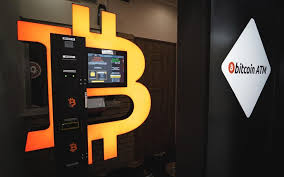Cryptocurrency ATMs, or Bitcoin ATMs as they’re often called, have popped up in convenience stores, gas stations, and malls across the United States, offering a quick way to swap cash for digital currencies like Bitcoin. They’re convenient, accessible, and often require little to no identification—qualities that make them appealing to everyday users but also, unfortunately, to criminals. The Financial Crimes Enforcement Network (FinCEN), a bureau of the U.S. Treasury Department, recently sounded the alarm on these machines, highlighting their growing role in money laundering and elder fraud. In a notice issued on August 4, 2025, FinCEN urged financial institutions to stay vigilant and report suspicious activities tied to these kiosks. This isn’t just a technical issue for regulators; it’s a human one, with real victims—especially seniors—losing millions to scams. Let’s unpack what’s happening, why it’s a problem, and what can be done about it.
The Dark Side of Digital Convenience
Cryptocurrency ATMs, also known as convertible virtual currency (CVC) kiosks, are designed to make buying and selling crypto as easy as withdrawing cash from a traditional ATM. You insert cash, scan a QR code, and boom—your money is converted into Bitcoin or another cryptocurrency. The problem? This simplicity is a double-edged sword. While it democratizes access to digital assets, it also creates a loophole for criminals. FinCEN’s recent advisory points out that these kiosks are being exploited for everything from drug money laundering to elaborate scams targeting vulnerable populations, particularly older adults. In 2024 alone, victim losses in the U.S. tied to these machines reached a staggering $247 million, with complaints surging by 99% compared to the previous year. That’s a tenfold increase in losses over recent years, and the numbers are likely underreported since only about 15% of victims file complaints.
Why are these kiosks so attractive to bad actors? For one, many operate with minimal oversight. Unlike banks, which are tightly regulated, some kiosk operators fail to register as money services businesses (MSBs) under the Bank Secrecy Act, a legal requirement. Others skip basic anti-money-laundering (AML) protocols, like collecting customer identification or filing suspicious activity reports (SARs). This lack of compliance creates a perfect storm for fraudsters, who can exploit the anonymity and speed of crypto transactions. Once cash is converted to cryptocurrency and sent to a criminal’s wallet—often overseas—recovery is nearly impossible. Add in high transaction fees (sometimes 7% to 25%), and victims are hit with a double whammy: they lose their money, and scammers walk away with a tidy profit.
Seniors in the Crosshairs
One of the most heartbreaking aspects of this issue is how it disproportionately affects older adults. The Federal Trade Commission (FTC) reports that people over 60 are more than three times as likely to lose money to crypto ATM scams, accounting for over two-thirds of the dollars lost through these machines. Scammers often pose as tech support, bank representatives, or even government officials, using unsolicited calls or fake pop-ups to trick victims into depositing cash at nearby kiosks. In one case highlighted by FinCEN, a 70-year-old retiree in California was conned out of $55,700 as part of a $1.49 million multinational fraud scheme. These predators exploit the trust and unfamiliarity with technology that many seniors have, guiding them step-by-step to drain retirement accounts or life savings. The irreversible nature of crypto transactions makes these scams particularly devastating.
Take a moment to imagine the human toll: a retiree, maybe someone’s grandparent, gets a call claiming their bank account is compromised. The voice on the phone sounds urgent, official, convincing. They’re told to withdraw thousands in cash and head to a crypto ATM to “secure” their funds. By the time they realize they’ve been scammed, the money is gone—transferred to a wallet in another country, converted to stablecoins, or “chain-hopped” across blockchains to hide the trail. It’s not just a financial loss; it’s a betrayal of trust that can leave victims feeling helpless.
Criminals Cashing In
It’s not just individual scammers at work. Organized crime groups, like Mexico’s Cartel Jalisco Nueva Generación, are using crypto ATMs to launder drug money, according to the Drug Enforcement Administration (DEA). Cities like Chicago, with around 1,167 kiosks, have become hotspots for these activities, drawing criminals from neighboring states. The process is straightforward: drug proceeds in cash are fed into a kiosk, converted to crypto, and moved to wallets that are nearly impossible to trace. FinCEN’s notice emphasizes that these machines are being used to facilitate everything from cybercrime to human trafficking, with criminals exploiting their lax oversight to move funds across borders.
This isn’t a small-scale problem. Posts on X and reports from the FBI estimate that crypto-related scams, including those involving ATMs, cost Americans $5.6 billion in 2024, a 45% jump from the previous year. The anonymity advertised by some non-compliant operators—coupled with their failure to file SARs or conduct due diligence—makes these kiosks a magnet for illicit activity.
A Call for Vigilance and Reform
So, what’s being done? FinCEN is urging banks and credit unions to step up their monitoring. They’re asking institutions to flag transactions of $2,000 or more that seem suspicious—like large cash withdrawals followed by crypto transfers or elderly customers with no crypto history making big deposits. FinCEN even provided a specific tag, “FIN-2025-CVCKIOSK,” for SARs to help track these cases. But the agency’s notice also points to a broader issue: many kiosk operators aren’t following the rules. Some don’t register with FinCEN, others provide false information to banks, and many lack effective AML programs.
There’s also a push for stronger regulation. Senator Dick Durbin’s Crypto ATM Fraud Prevention Act, introduced in February 2025, aims to tighten the screws with measures like $2,000 daily transaction limits for new users, mandatory disclosures, and refund rights for fraud victims. Meanwhile, places like Spokane, Washington, have gone further, banning crypto ATMs outright after FBI data showed $5.6 billion in nationwide losses. Other countries, like New Zealand and Australia, are also cracking down, with outright bans or stricter ID checks.
Moving Toward a Safer Future
The rise of crypto ATM scams is a stark reminder that innovation often comes with risks. These machines were meant to make cryptocurrency accessible, but without proper oversight, they’ve become a tool for exploitation. For consumers, the advice is clear: be wary of unsolicited calls or messages pushing you to use a crypto ATM. For the industry, it’s about stepping up compliance—implementing know-your-customer (KYC) protocols and transaction monitoring to match the standards of traditional banks. Regulators and financial institutions need to work together to close the gaps that criminals are exploiting.
The human cost of these scams, especially for seniors, can’t be overstated. Behind every statistic is someone who’s lost their savings, their security, or their trust. FinCEN’s warning is a wake-up call, but it’s only the start. As cryptocurrency becomes more mainstream, balancing convenience with security will be critical to protecting vulnerable users and maintaining trust in the digital economy. If you or someone you know is approached about using a crypto ATM, double-check the source and report anything suspicious to the authorities. It could save someone’s life savings.
Sources:
- The Block: FinCEN Warns Financial Institutions of Crypto ATM Fraud
- American Banker: FinCEN Urges Banks to Beware Crypto ATM Scams
- WebProNews: FinCEN Warns of $3.9B Surge in Crypto Kiosk Fraud
- CoinDesk: U.S. Money Laundering Watchdog Warns of Crypto Kiosk Scams
- FinanceFeeds: U.S. Treasury Flags Rising Crime Tied to Crypto ATMs
- Yahoo Finance: FinCEN Issues Warning on Bitcoin ATMs Used in Scams
- TradingView News: Treasury Issues Urgent Bitcoin ATM Scam Alert
- X Post by @Cointelegraph: New Zealand Bans Crypto ATMs
- X Post by @MarkETHreal: Hackers Laundering Stolen Funds




























I love your blog
That story about the elderly guy losing $1.4M in a romance scam hit hard.
$3M lost in just a year is insane.
That $5k limit in Australia sounds smart, but will it stop the crooks
I saw one at a gas station and thought it was cool, but now I’m side-eyeing it
$3M in losses and only 150 reported cases